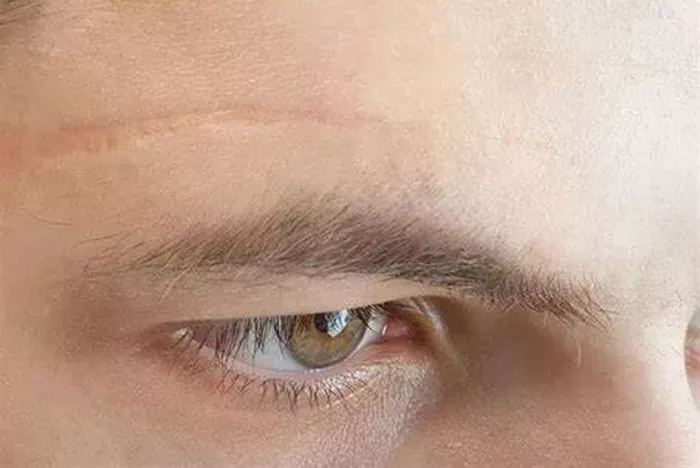Obsessive-Compulsive Disorder (OCD) is a mental health condition characterized by persistent, intrusive thoughts (obsessions) and repetitive behaviors or mental acts (compulsions) performed to alleviate the distress caused by these thoughts. OCD can significantly impact daily functioning and quality of life. However, various treatment options are available to help individuals manage and alleviate their symptoms. This article explores three primary treatments for OCD: Cognitive Behavioral Therapy (CBT), medication, and lifestyle changes.
Understanding OCD
Before delving into the treatments, it’s essential to understand the nature of OCD. Individuals with OCD often experience overwhelming anxiety due to their obsessions and feel compelled to perform certain rituals or routines to reduce this anxiety. Common obsessions include fears of contamination, harm, or making mistakes, while common compulsions include excessive cleaning, checking, or counting.
1. Cognitive Behavioral Therapy (CBT)
What is CBT?
Cognitive Behavioral Therapy (CBT) is a type of psychotherapy that aims to change patterns of thinking and behavior. It is considered one of the most effective treatments for OCD. CBT helps individuals identify and challenge distorted thoughts and beliefs, develop healthier thinking patterns, and learn coping strategies to manage anxiety and reduce compulsive behaviors.
Exposure and Response Prevention (ERP)
Exposure and Response Prevention (ERP) is a specific form of CBT that is particularly effective for treating OCD. ERP involves gradually exposing individuals to situations or objects that trigger their obsessions while preventing them from engaging in their usual compulsive behaviors. This process helps individuals build tolerance to anxiety and reduce the urge to perform compulsions.
How ERP Works
Assessment and Hierarchy Creation: The therapist and individual identify specific obsessions and compulsions and create a hierarchy of feared situations, ranking them from least to most anxiety-provoking.
Gradual Exposure: The individual is gradually exposed to the situations on their hierarchy, starting with the least anxiety-provoking. They are encouraged to resist performing compulsions during these exposures.
Response Prevention: The therapist supports the individual in refraining from engaging in compulsive behaviors, helping them learn that anxiety will decrease over time without these behaviors.
Repetition and Practice: Repeated exposures and response prevention exercises help desensitize the individual to their obsessions and reduce the compulsion to perform rituals.
Cognitive Restructuring
Cognitive restructuring is another component of CBT used to treat OCD. This technique involves identifying and challenging irrational or distorted thoughts that contribute to obsessive thinking and compulsive behaviors. By changing these thought patterns, individuals can reduce anxiety and gain better control over their OCD symptoms.
Steps in Cognitive Restructuring
Identifying Distorted Thoughts: The individual learns to recognize irrational or exaggerated thoughts related to their obsessions.
Challenging These Thoughts: The therapist helps the individual examine the evidence for and against their distorted thoughts, encouraging more balanced and realistic thinking.
Developing Healthier Beliefs: The individual replaces irrational thoughts with more rational and constructive beliefs, reducing the power of obsessions and compulsions.
Benefits of CBT for OCD
CBT, particularly ERP, has been shown to be highly effective in reducing OCD symptoms. Benefits include:
Reduced Anxiety: By confronting fears and learning to tolerate anxiety, individuals experience a significant reduction in obsessive thoughts and compulsive behaviors.
Improved Coping Skills: CBT equips individuals with tools and strategies to manage stress and anxiety more effectively.
Long-Term Effectiveness: The skills learned in CBT can provide lasting relief from OCD symptoms, helping individuals maintain improvements over time.
See Also: Why Is Fexofenadine Not Working?
2. Medication
Selective Serotonin Reuptake Inhibitors (SSRIs)
Selective Serotonin Reuptake Inhibitors (SSRIs) are a class of medications commonly prescribed to treat OCD. SSRIs work by increasing the levels of serotonin, a neurotransmitter, in the brain. This helps regulate mood, reduce anxiety, and alleviate OCD symptoms.
Common SSRIs for OCD
Fluoxetine (Prozac): Often prescribed for OCD, fluoxetine helps reduce the frequency and intensity of obsessions and compulsions.
Sertraline (Zoloft): Another commonly used SSRI, sertraline has been shown to be effective in treating OCD symptoms in both adults and children.
Fluvoxamine (Luvox): Specifically approved for the treatment of OCD, fluvoxamine can help decrease obsessive thoughts and compulsive behaviors.
How SSRIs Work
SSRIs block the reabsorption (reuptake) of serotonin into neurons, making more serotonin available in the brain. This increased availability enhances mood and reduces anxiety, helping to alleviate OCD symptoms. It typically takes several weeks for SSRIs to start showing noticeable effects.
Side Effects of SSRIs
While SSRIs are generally well-tolerated, they can have side effects. Common side effects include nausea, headache, insomnia, and sexual dysfunction. These side effects are usually mild and tend to diminish over time. It’s essential for individuals to work closely with their healthcare provider to monitor any side effects and adjust the medication if necessary.
Benefits of SSRIs for OCD
Reduction in Symptoms: SSRIs can significantly reduce the severity of obsessions and compulsions.
Improved Quality of Life: By alleviating OCD symptoms, SSRIs can enhance daily functioning and overall well-being.
Combination with Therapy: SSRIs can be used in conjunction with CBT to provide a more comprehensive treatment approach.
Other Medications
In some cases, other medications may be prescribed to treat OCD, particularly if SSRIs are not effective or if additional symptoms need to be addressed. These medications can include:
Tricyclic Antidepressants (TCAs): Clomipramine (Anafranil) is a TCA that is often effective in treating OCD, particularly in individuals who do not respond to SSRIs.
Antipsychotics: Medications such as risperidone (Risperdal) or aripiprazole (Abilify) may be used as adjunctive treatment for individuals with treatment-resistant OCD or co-occurring conditions.
3. Lifestyle Changes
Exercise
Regular physical exercise has been shown to have numerous benefits for mental health, including reducing symptoms of OCD. Exercise helps release endorphins, which can improve mood and reduce anxiety. It also provides a healthy outlet for stress and can distract from obsessive thoughts.
Types of Exercise
Aerobic Exercise: Activities such as running, swimming, or cycling can help reduce anxiety and improve overall well-being.
Strength Training: Weightlifting or resistance training can boost self-esteem and provide a sense of accomplishment.
Yoga and Mindfulness: These practices can help individuals relax, focus their minds, and reduce the impact of obsessive thoughts.
Diet and Nutrition
A balanced diet can play a role in managing OCD symptoms. Proper nutrition supports overall brain health and can improve mood and energy levels.
Nutritional Tips
Omega-3 Fatty Acids: Found in fish, flaxseeds, and walnuts, omega-3 fatty acids can support brain health and reduce anxiety.
Whole Grains: Foods like oatmeal, brown rice, and whole wheat bread provide steady energy and help regulate mood.
Fruits and Vegetables: A diet rich in fruits and vegetables provides essential vitamins and minerals that support overall health.
Sleep Hygiene
Adequate sleep is crucial for mental health. Poor sleep can exacerbate OCD symptoms, making it important to establish good sleep hygiene practices.
Sleep Tips
Consistent Sleep Schedule: Going to bed and waking up at the same time each day helps regulate the body’s internal clock.
Relaxing Bedtime Routine: Activities such as reading, taking a warm bath, or practicing relaxation techniques can promote better sleep.
Comfortable Sleep Environment: Creating a comfortable, dark, and quiet sleep environment can improve sleep quality.
Stress Management
Managing stress is vital for individuals with OCD. High stress levels can trigger or worsen OCD symptoms, so implementing effective stress management techniques is essential.
Stress Reduction Techniques
Mindfulness Meditation: Practicing mindfulness meditation can help individuals stay present and reduce the impact of obsessive thoughts.
Deep Breathing Exercises: Deep breathing can activate the body’s relaxation response and decrease anxiety.
Time Management: Prioritizing tasks and setting realistic goals can reduce stress and prevent feeling overwhelmed.
Support Systems
Having a strong support system is crucial for managing OCD. Connecting with others who understand and provide encouragement can make a significant difference in the treatment process.
Types of Support
Therapist or Counselor: Regular sessions with a mental health professional can provide guidance, support, and accountability.
Support Groups: Joining a support group for individuals with OCD can provide a sense of community and shared experiences.
Family and Friends: Educating loved ones about OCD and involving them in the treatment process can create a supportive environment.
Combining Treatments for Optimal Results
While each of the three treatments discussed—CBT, medication, and lifestyle changes—can be effective on their own, combining these approaches often yields the best results. A comprehensive treatment plan that includes therapy, medication (if necessary), and lifestyle modifications can provide a holistic approach to managing OCD.
Creating a Personalized Treatment Plan
It’s important to work with a mental health professional to create a personalized treatment plan tailored to individual needs and preferences. This plan should be flexible and adaptable, allowing for adjustments based on progress and changing circumstances.
Monitoring Progress
Regularly monitoring progress is essential to ensure that the treatment plan is effective. Keeping track of symptoms, triggers, and improvements can help individuals and their healthcare providers make informed decisions about treatment adjustments.
Seeking Professional Guidance
While self-help strategies can be beneficial, professional guidance is crucial for effectively managing OCD. Mental health professionals can provide expertise, support, and evidence-based treatments to help individuals achieve the best possible outcomes.
Conclusion
Obsessive-Compulsive Disorder (OCD) is a challenging condition, but with the right treatment, individuals can manage their symptoms and improve their quality of life. Cognitive Behavioral Therapy (CBT), particularly Exposure and Response Prevention (ERP), is a highly effective treatment approach. Medication, such as Selective Serotonin Reuptake Inhibitors (SSRIs), can also play a crucial role in reducing OCD symptoms. Additionally, lifestyle changes, including regular exercise, a balanced diet, good sleep hygiene, and stress management techniques, can support overall mental health and well-being. Combining these treatments and working closely with mental health professionals can provide a comprehensive and effective approach to managing OCD.
[inline_related_posts title=”You Might Be Interested In” title_align=”left” style=”list” number=”6″ align=”none” ids=”10685,10621,10493″ by=”categories” orderby=”rand” order=”DESC” hide_thumb=”no” thumb_right=”no” views=”no” date=”yes” grid_columns=”2″ post_type=”” tax=””]


































